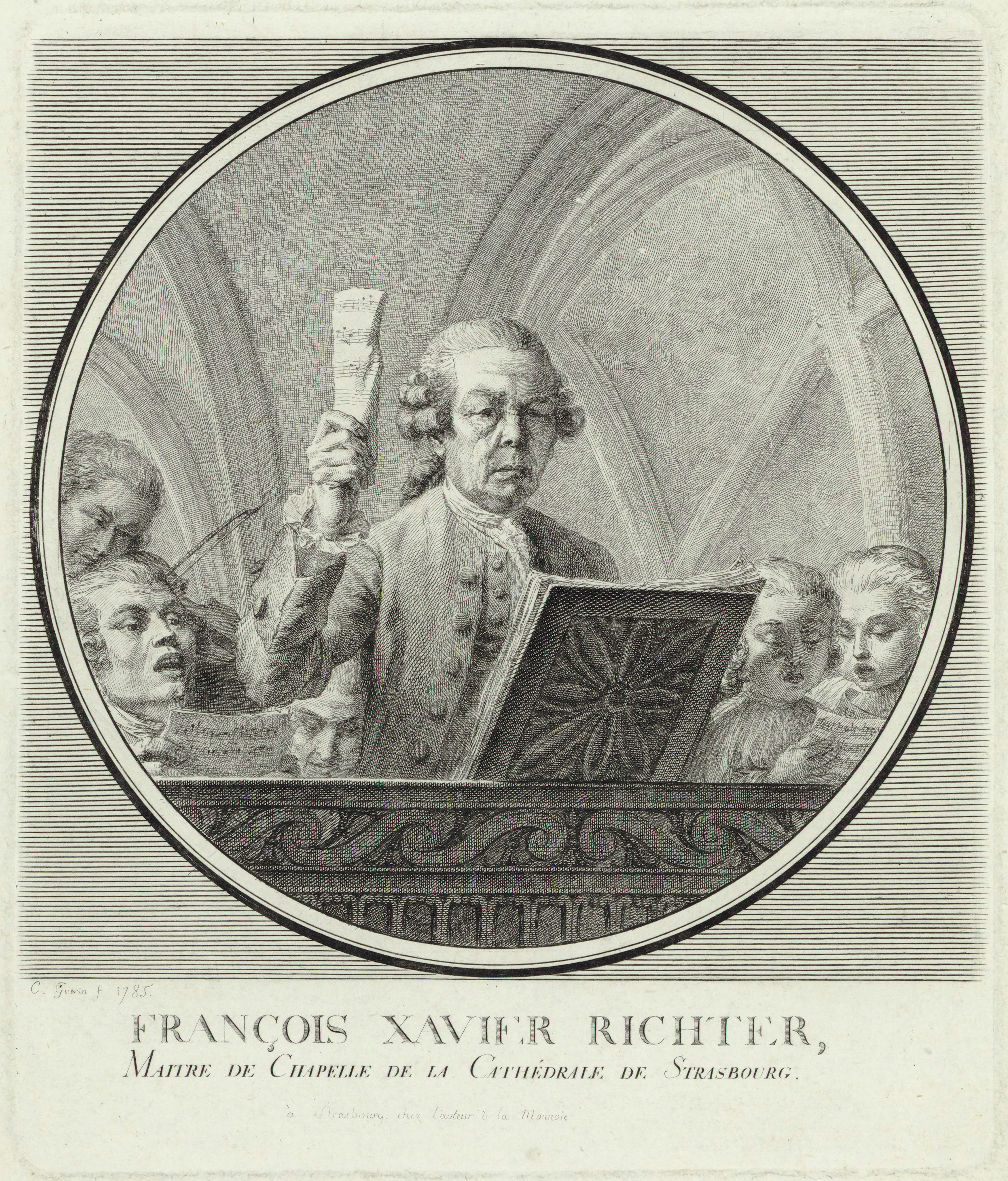Franz Xaver Richter
 Franz (Czech: František) Xaver Richter, known as ''François Xavier Richter'' in France (December 1, 1709 – September 12, 1789) was an Austro-Moravian singer, violinist, composer, conductor and music theoretician who spent most of his life first in Austria and later in Mannheim and in Strasbourg, where he was music director of the cathedral. From 1783 on, Haydn's favourite pupil, Ignaz Pleyel, was his deputy director.
Franz (Czech: František) Xaver Richter, known as ''François Xavier Richter'' in France (December 1, 1709 – September 12, 1789) was an Austro-Moravian singer, violinist, composer, conductor and music theoretician who spent most of his life first in Austria and later in Mannheim and in Strasbourg, where he was music director of the cathedral. From 1783 on, Haydn's favourite pupil, Ignaz Pleyel, was his deputy director.The most traditional of the first-generation composers of the so-called Mannheim school, he was highly regarded in his day as a contrapuntist. As a composer he was equally at home in the concerto and the "strict church style". Mozart heard a mass by Richter on his journey back from Paris to Salzburg in 1778 and called it "charmingly written". Richter, as a contemporary engraving clearly shows, must have been one of the first conductors to actually have conducted with a music sheet roll in his hand.
Richter wrote chiefly symphonies, concertos for woodwinds as well as trumpet, and chamber and church music, his masses receiving special praise. He was a man of a transitional period, and his symphonies in a way constitute one of the missing links between the generation of Bach and Handel and the "First Viennese school". Although sometimes contrapuntal in a learned way, Richter's orchestral works nevertheless exhibit considerable drive and verve. Until a few years ago, apparently the only available recordings of Richter's music were performances of his trumpet concerto in D major, but recently a number of chamber orchestras and ensembles have included many of his pieces, particularly symphonies and concertos, in their repertoires. Provided by Wikipedia
Showing 1 - 2
of 2
for search: 'Richter, František Xaver, 1709-1789',
query time: 0.01s